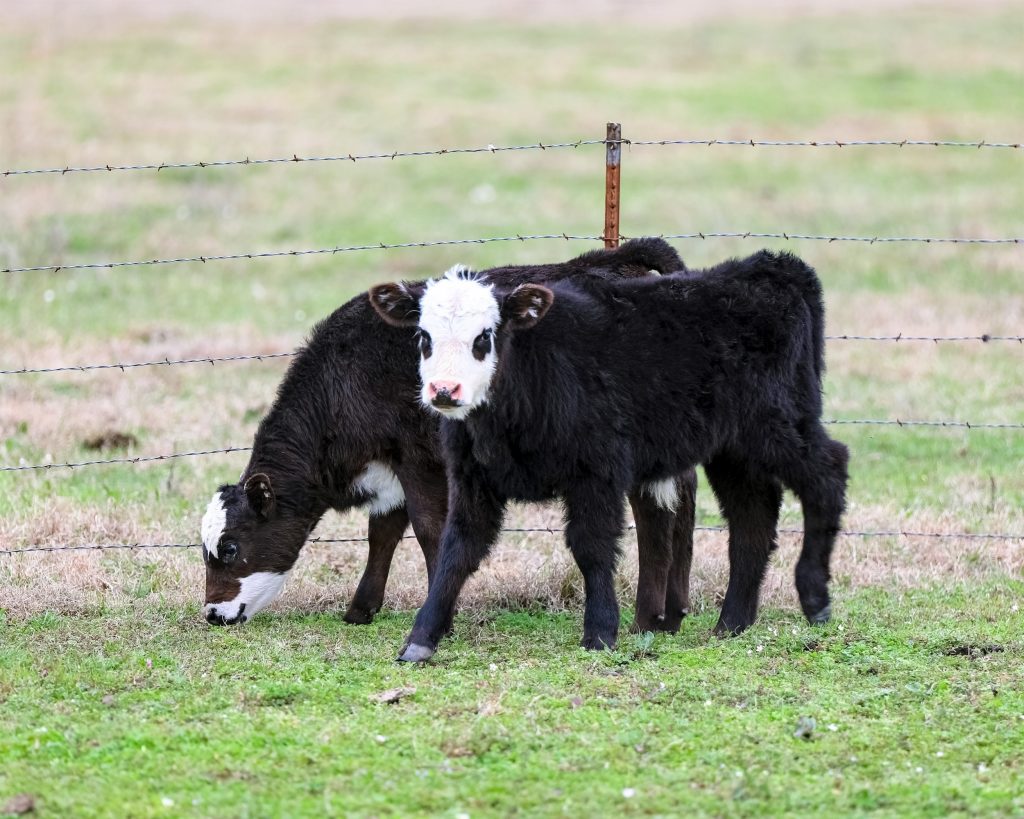
Mark Johnson, Oklahoma State University Extension Beef Cattle Breeding Specialist, offers herd health advice as part of the weekly series known as the “Cow Calf Corner” published electronically by Dr. Peel, Mark Johnson, and Paul Beck. Today, Johnson talks about parisite control.
Modern beef cattle production is a business. As such, the expense of each production input should be weighed against the profit potential it creates. Successfully managing a commercial cow-calf operation is based on making the best economic decisions on a day-to-day basis. Making good decisions each day is the result of planning, anticipating what will happen and reacting positively to what does happen. With this in mind, this week’s topic is parasite control. For spring calving herds, it’s the time of year to turn out on warm season grass pastures. For spring born calves, decisions on when to administer the first round of vaccinations, castration, growth implants and parasite control will impact the profit potential of those calves in the months ahead.
Veterinarians and producers realize the potential negative impact parasites can have on cattle performance, health, well-being and economic return. Parasitism can have subclinical effects such as suppression of the immune system, reduced weight gain, reduced conception rates and reduced milk production. As well as clinical effects such as anemia, diarrhea, rough hair coat and death.
Adult Cattle
Although immunity to internal parasites develops with maturity in most cattle, adult cattle (over two years of age) still harbor internal parasites and can be a major source of pasture contamination. While it is difficult to justify the practice of deworming adult cattle strictly for the performance benefit to the individual animal, untreated adult cattle are a significant source of pasture contaminations for young cattle. A non-treated cow-calf pair can deposit millions of eggs onto a pasture during grazing season.
Young Cattle
Milk is the primary source of nutrition for young calves. These young calves learn grazing behavior from their dams starting at a few weeks of age. A good rule of thumb to use: young calves will benefit from deworming medication at approximately two months of age or at 200 pounds of body weight. Studies have shown deworming the cow and her calf at this time provides significant economic return. Calves younger and lighter than this typically don’t need to be treated for internal parasites; however, in cases of severe drought or lack of milk production from the dam, young calves will start to graze earlier and accordingly develop internal parasite infections earlier negatively impacting their growth. If calves are two months of age or more than 200 pounds at spring grazing turnout, it is safe to assume they will start to acquire internal parasite infections on day one of grazing.
Because of the numerous factors involved in developing a practical, cost effective parasite control program, it is advised that cattle producers work closely with their veterinarians to develop a customized control program that results in the most optimum benefit to their operation. More detail can be found on the topic of internal parasite control in chapter 37 of the OSU Beef Cattle Manual.
Reference:
Chapter 37. OSU Beef Manual, eighth edition.


















